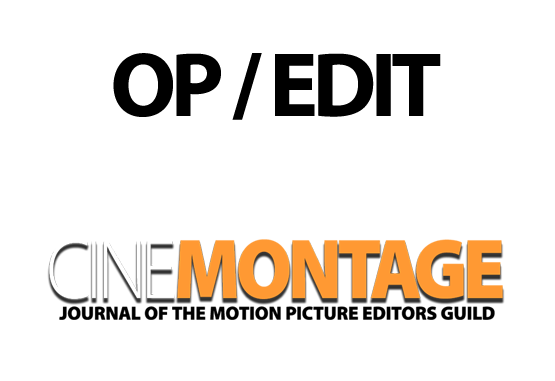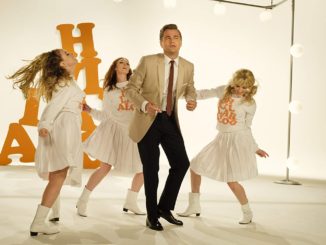
by Adam Lichtenstein
What if I were to tell you that the very thing that you’d previously considered an asset — your natural-born ability to tell stories — was the very cause of your career’s demise? What if I were to tell you that your compulsion to share your wealth of experience with others would eventually be the reason behind how you became a pariah to everyone around you? What would you do to prevent this almost certain death? Would you try to change your essential being? Well, in effect that’s precisely what’s being asked of us as editors, and the solution is to apply a rigorous course of treatment.
Recently, I got together with a former colleague who’d changed careers to become a teacher. He told me about the time, 10 years ago, when he detected a change in his overall outlook that left him no longer fulfilled by our profession. As he moved further into his new chosen field, he discovered that this feeling had its roots in established theory by a noted psychoanalyst, Erik Erikson (1902-1994), but at the time, the thing that had overcome him remained a mystery.
Erikson’s work focused on the development of personality over the course of one’s lifetime. He broke it down into eight stages, and it’s the seventh stage that is most relevant to us editors. This stage concerns us because it focuses on our caring natures and the crisis that arises from them. The operative term here is generativity, and it often plays itself out in the workplace. The existential dilemma it produces has to do with educating the next generation and a desire to leave behind a valued legacy.
My teacher friend, John, a lovely guy, told me that when he first started editing, it was enough for him to make children out of the work he’d created, but that those enriching experiences had become few and far between; the job had changed, the product had changed and the benefits had changed. He described it further, saying the entire community had been replaced (“I was no longer surrounded by well-matched sparring partners.”) and that his business had shriveled up too, making it no longer viable for a responsible adult member of the middle class with a family and a mortgage. Of all the items he mentioned that were in flux, he himself was the only ingredient conspicuously missing.
Given the especially competitive climate, it seems likely that we’ll have to compartmentalize our emerging selves.
At the same time, John began to see himself less as an editor and more as a venerable, opinionated host, like Mark Twain, telling stories from his life and career, which he hoped would be heeded. He saw his ability to shape his life’s lessons into precious stories as a gift to his clients. Despite how it was perceived, it was his immovable nature now.
Then John noticed something. This virtue — this caring impulse to share and apply his new found panoramic wisdom — was responsible for the work drying up around him. He found that nobody gave a rat’s ass about his experience, and was even less interested in hearing about it. People simply wanted him to do what he was told, to do it quickly and to do it quietly. Oddly, John’s new desire to create a legacy — born out of a deep abiding love of his craft — was depleting him. It wasn’t hard to see that his new disposition wasn’t being met by his circumstances, so he started making moves to get out. In the coming year, he will be finishing his studies and be completely gone from a profession he sees as having rejected his natural personality development.
I can’t deny the truth of my friend’s experience. There are indeed many things that make being an editor more difficult than ever, least of which is our personal agreeability. Our business has been forever altered. There are hundreds — if not thousands — of eager editors waiting behind us in line for jobs. But despite the changing face of our industry, most of us are just as passionate about our craft, and just as committed to keeping it a sustainable living, as we were when we first began.
Given the especially competitive climate, it seems likely that we’ll have to compartmentalize our emerging selves and make the necessary adjustments. For decades it’s been a marvelous profession, an unpredictable profession but, in the end, a worthwhile profession — and we’re not ready to jump ship or be pushed aside. We’ll fight if we have to, just as we have in the past, but it might require adapting in ways we didn’t anticipate when we first started putting this dream together.
Stagnation is not an option, but self-reflection must certainly be.





